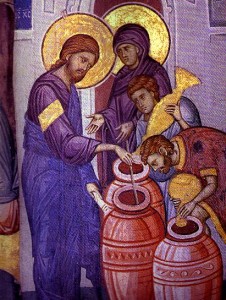
Introduction:
The great 19th century Baptist preacher, Charles Haddon Spurgeon, preached a Sunday Morning Message in 1855 that he had entitled: "The Immutability of God". In his introduction, Spurgeon began with the following thoughts about God with respect to the Christian life: "The proper study of a Christian is the Godhead. The highest science, the loftiest speculation, the mightiest philosophy, which can ever engage the attention of a child of God, is the name, the nature, the person, the work, the doings, and the existence of the great God whom he calls his Father. There is something exceedingly improving to the mind in a contemplation of the Divinity. It is a subject so vast, that all our thoughts are lost in its immensity; so deep, that our pride is drowned in its infinity."
As Spurgeon waxed eloquently about the greatness and glory of God, he then closed his introductory remarks with this observation: "Would you lose your sorrows? Would you drown your cares? Then go, plunge yourself in the Godhead’s deepest sea; be lost in his immensity; and you shall come forth as from a couch of rest, refreshed and invigorated. I know nothing which can so comfort the soul; so calm the swelling billows of grief and sorrow; so speak peace to the winds of trial, as a devout musing upon the subject of the Godhead."
Spurgeon's sentiments capture the simultaneous awe and comfort this blogger has discovered when approaching the greatness of God. In today's post I want to offer what is admittedly a faint outline of this most important doctrine. Many historic doctrinal statements and creeds have aided Christians throughout the centuries in verbalizing and summarizing the greatness of God. For today's post I will use the Baptist Faith & Message 2000 and its opening article on the doctrine of God. The reader can check out the article, which contains many Biblical references underlying its statements at: http://www.sbc.net/bfm2000/bfm2000.asp
For our purposes today, I will lay out the BFM 2000's article on "God" and note four main headings under which the statement seems to fall. The reader than then take these suggested headings and click on the above link and search the appropriate scriptures contained at the site.
Baptist Faith & Message 2000 article on "God" and four suggested headings for studying the greatness of God
1. The Existence of God
"There is one and only one living and true God.
2. The Active Attributes of God
a. God's actions
He is an intelligent, spiritual, and personal Being, the Creator, Redeemer, Preserver, and Ruler of the universe.
b. God's goodness (moral attributes)
God is infinite in holiness and all other perfections.
c. God's infinite attributes
God is all powerful and all knowing; and His perfect knowledge extends to all things, past, present, and future, including the future decisions of His free creatures.
3. Maximal Greatness of God (worthiness of worship)
To Him we owe the highest love, reverence, and obedience.
4. Identity of God
The eternal triune God reveals Himself to us as Father, Son, and Holy Spirit, with distinct personal attributes, but without division of nature, essence, or being."






